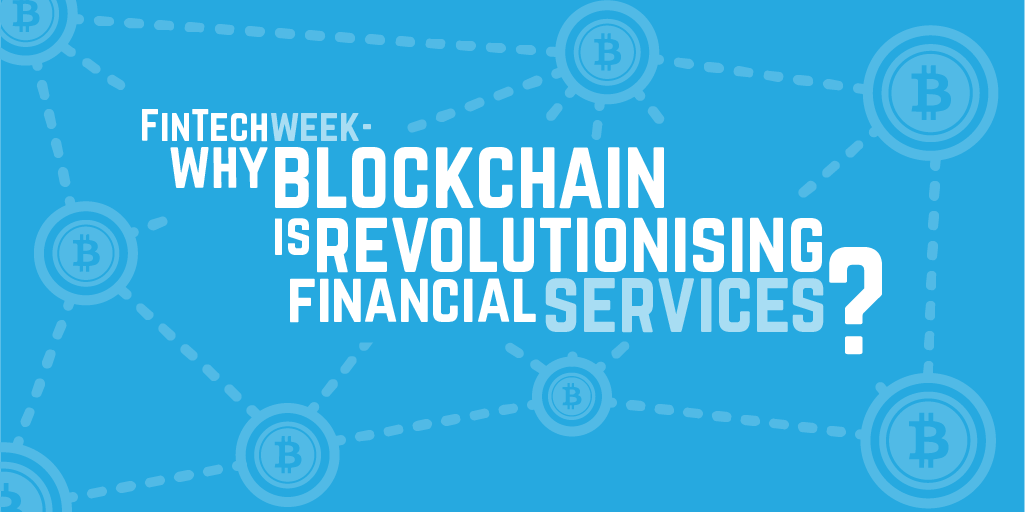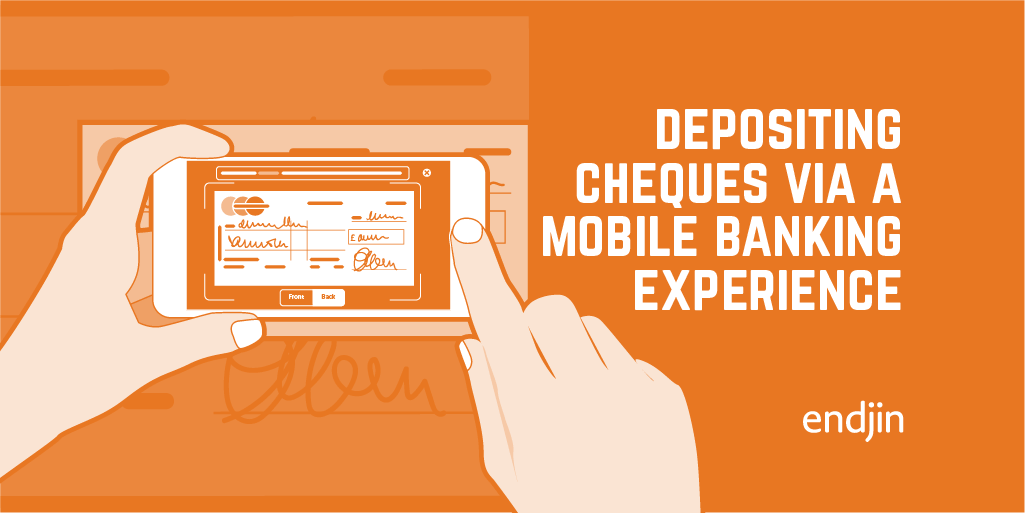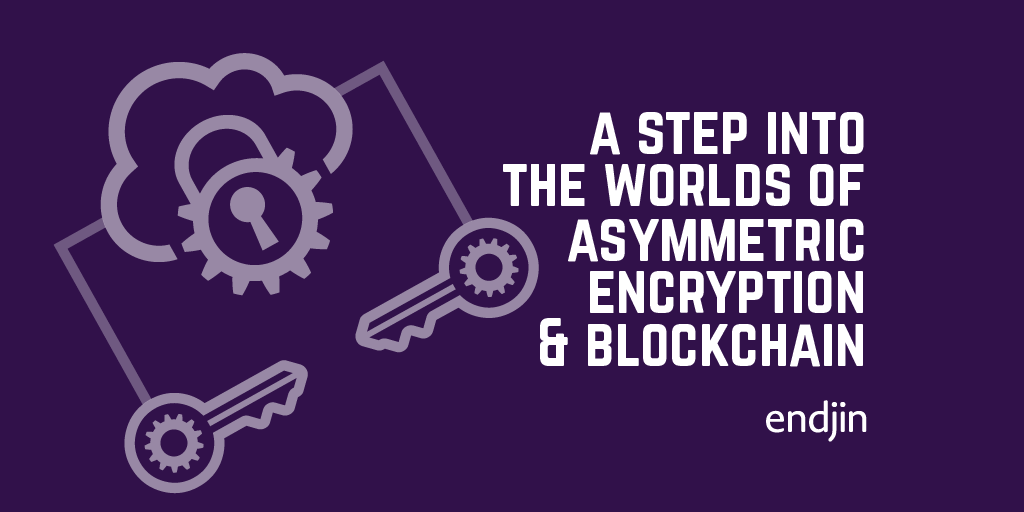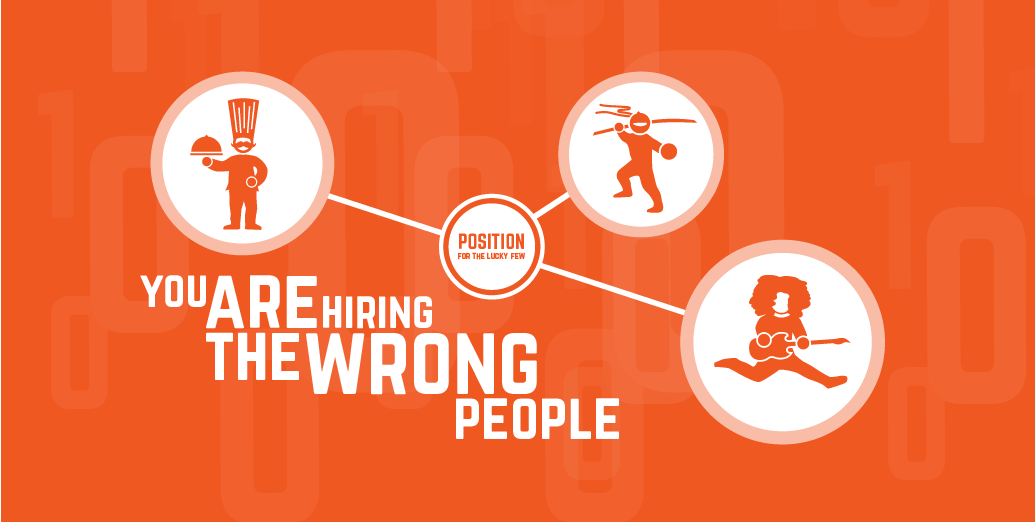Why is blockchain revolutionising Financial Services?

Today, we are talking about the blockchain.
There is a lot of hype about the blockchain - usually wrapped up with talk about Bitcoin, crypto-currencies and people being arrested in Japan.
But when you cut through the hype, there is a underlying reality that will revolutionise the provision of financial services: the kind of reality that caused Microsoft to partner with ConsenSys, and make Ethereum blockchain-as-a-service a first class Azure offering; the kind of reality that stimulates mega-consultancies like Accenture to spin up a new practice.
So, why is the blockchain important? It is all about trust, and auditability.
At the moment transactions between financial parties (e.g. banks) are secure, privileged, and, above all secret. Each bank maintains its own ledger of transactions, and keeps it under lock-and-key.
When you pay your electricity bill, for example, you send a request to your bank, Bank A, to transfer money to the electricity company's account. (In the old days, that would be a paper cheque, but now it is an electronic request.)
Bank A processes that request, and a corresponding debit is placed into the ledger against your account by your bank, and another request to send the funds is sent to the electricity company's bank, Bank B.
When that request is processed, Bank B places a credit for the requested amount into the ledger against the electricity company's account.
Eventually, all those requests are aggregated, and a net transfer of funds occurs between Bank A and Bank B to balance it all out.
Ultimately, there is then a reconciliation process carried out by auditors at both Bank A and Bank B to verify that all of the requests have been correctly transacted, and that the right amount of money is in your account, the electric company's account, and that the banks hold the correct amount of cash.
While all of that is in flight, the banks have to trust that the amounts have all been keyed correctly (i.e. that the requests all matched correctly), and that it all ultimately reconciles correctly. Until it is all reconciled correctly, all those "in flight" transactions represent risk to the concerned parties.
This could be fixed, if both parties just opened up their ledgers. Clearly, they won't do that, as an untrustworthy party could just forge entries in the ledger and give themselves more money. (And the ledger itself is commercially sensitive - you don't want your competitors to be able to view your customer's account histories, or even the volume of transactions you are making.)
So, we are stuck with a very manual, and inaccurate process that can take hours, days, and even months to resolve. On any given day, individual financial institutions have billions of dollars of funds in flight, with millions of dollars of discrepancies. Any party can repudiate the transactions, and there is no way to prove that it is all accurate - except through this disquieting combination of up-front trust and post-hoc (expensive) audit.
This is a huge barrier to entry to new, smaller players - they need a deal of capital to cover their risk, and none of the existing players will trust them (however much customer demand there might be for their services). In fact, this was one reason it took so long for electronic requests to take off in the 1990s - none of the banks would trust each other, and discussions often foundered when one agreed, as the others assumed that it was therefore giving them some commercial advantage.
Blockchain changes all this.
The transaction ledger itself becomes visible to both transacting parties (although it doesn't have to be fully public), containing unforgeable tokens representing the transactions whose content is opaque except to the parties concerned. They are therefore non-repudiable, and can be verified as accurate by machine on both sides, as the transactions are executed, rather than requiring post-hoc reconciliation.
(For a deeper technical look at exactly what level of privacy this enables, and how, take a look at this blog post.)
This levels the playing field for new entrants to the market, as the trust- and risk-profiles are reduced, but it is also attractive to existing players - not only does it reduce their risk, but it reduces the cost associated with that post-hoc reconciliation and audit.
Even more interestingly, the token can actually wrap some more complex executable program, than a simple credit/debit instruction. You could, for example, define a complex financial instrument (like a multi-leg trade, for example), in code. This then represents the actual, non-repudiable contract for the trade. There is no room for lawyer's arguments as to exactly what the client purchased (common when a complex trade goes wrong) - the code embodies it, and is defined by an unforgeable token in the public ledger. This is known as a "smart contract".
There are downsides, however. Blockchain is too often lifted out as the "one size fits all" solution to these problems, when, in fact, "a database" is the only thing you need. If both parties have a signed copy of a document, with a cryptographic signature from both ends, that is equally non-repudiable, and can be stored by traditional means. The unique benefits of the blockchain are applicable in fewer circumstances than you might think!
If you want to talk about how the blockchain could be used in your business, from financial transactions to contract management, then please drop us a line; we'd love to help to understand your scenario.




